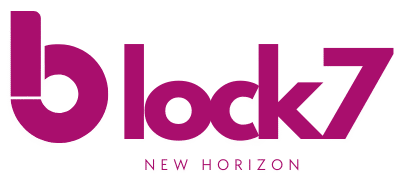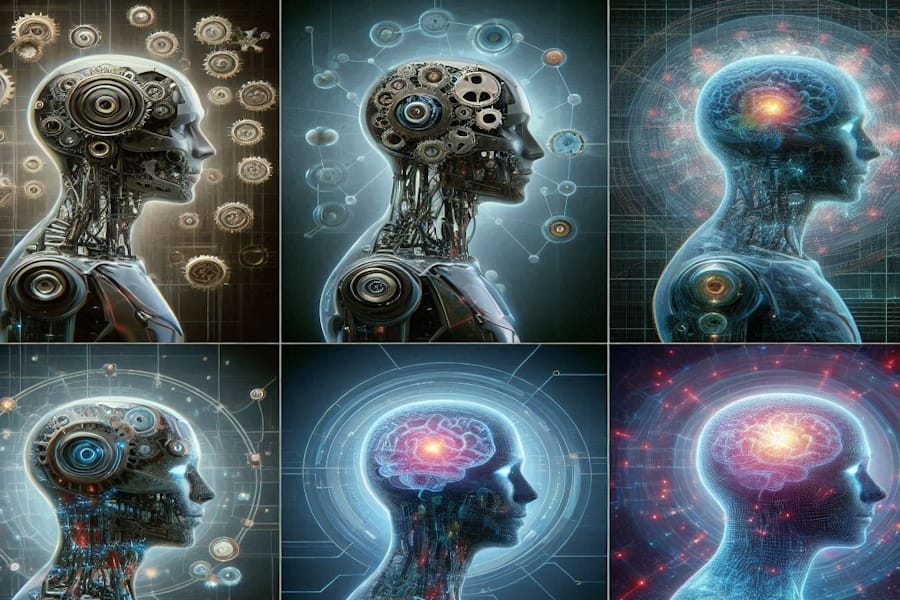Artificial Intelligence (AI) is not just a technological milestone—it represents a defining moment in human evolution. From healthcare and education to creativity and ethics, AI is reshaping how society functions. But is AI truly at the cutting edge of our evolutionary journey, or just another tool we’ve created? This article explores AI’s impact, challenges, and future role in human progress.
Introduction: Why This Question Matters Today
The question “Is Artificial Intelligence truly at the cutting edge of human evolution?” reflects a deep societal concern: Are we living through a genuine transformation of what it means to be human, or are we exaggerating the hype?
Americans are asking this more frequently in 2025 as AI systems like ChatGPT, MidJourney, and autonomous robotics enter everyday life. From AI-driven cancer detection at the Mayo Clinic to AI-powered tutoring platforms in U.S. classrooms, AI isn’t just a futuristic promise—it’s shaping decisions, opportunities, and even personal identities right now.
But to truly evaluate AI’s role in human evolution, we need to look at history, science, ethics, economics, and real-life case studies.
What Do We Mean by “Human Evolution” in the Context of AI?
Human evolution has historically meant biological change. But in the 21st century, the term has expanded. Now, evolution can mean:
- Biological Progression: Genetic and cognitive adaptations shaped by natural selection.
- Technological Augmentation: Using tools, medicine, and AI to enhance human capacity.
- Cultural Evolution: How societies change in values, laws, and behaviors.
AI is not rewriting DNA (yet), but it is transforming cultural and technological evolution. The line between human and machine capacity is blurring.
How Is AI Already Redefining Human Capabilities?
AI extends human intelligence much like fire, agriculture, and electricity once extended our survival.
Real-Life Examples
- Healthcare: At Johns Hopkins, AI algorithms now assist in diagnosing breast cancer with accuracy rates surpassing 95%, outperforming some human radiologists.
- Education: AI tutors like Khanmigo (from Khan Academy) adapt lessons to student learning speeds, revolutionizing American classrooms.
- Creativity: Artists are co-creating with AI, from Hollywood scriptwriters using GPT for storyboarding to musicians leveraging AI to generate beats.
These breakthroughs highlight that AI is less about replacing humanity and more about expanding human potential.
Is AI Driving a New Stage of Evolution—or Just Accelerating Change?
The core question: Are we evolving, or just upgrading our tools?
Some argue AI is a continuation of human ingenuity, not evolution itself. For example, just as the printing press revolutionized literacy but didn’t alter our DNA, AI may be advancing our culture without changing biology.
Others suggest AI represents the first step toward “post-human evolution.” Thinkers like Yuval Noah Harari point to Homo Deus, where humans merge with intelligent machines, possibly leading to a new species of “augmented humans.”
How AI Impacts Human Identity and Creativity
AI as a Creative Partner
Hollywood, Nashville, and even Silicon Valley are experiencing a surge of AI-assisted creativity. In 2024, Warner Bros. used AI to analyze thousands of scripts and predict which stories would resonate most with audiences.
In music, TikTok creators use AI to remix songs, generating viral hits without traditional producers. The U.S. Copyright Office, however, has ruled that AI-generated works without human involvement cannot be copyrighted—sparking debates about what counts as human creativity.
Key Takeaway
AI doesn’t erase human creativity—it redefines what collaboration looks like between humans and machines.
Economic Evolution: Are Jobs the Real Battleground?
The American labor market is the frontline of AI’s impact.
- McKinsey & Company predicts up to 30% of U.S. jobs could be automated by 2030.
- Retail cashiers, call center workers, and data entry clerks are especially vulnerable.
- Conversely, AI specialists, ethicists, and human-machine interface designers are in demand.
Example
In 2023, Wendy’s partnered with Google to test AI-powered drive-thru ordering systems. While efficient, this shift raised questions about thousands of U.S. fast-food workers’ futures.
Pointers
- Jobs at risk: Clerical, transportation, retail.
- Jobs rising: AI ethics, software engineering, AI auditing, healthcare AI integration.
- Adaptation strategy: Upskilling, reskilling, lifelong learning programs.

The Ethical Dilemma: Should AI Be Allowed to Decide Human Fates?
AI’s role in life-and-death decisions is particularly controversial.
- In U.S. hospitals, AI systems now recommend treatments. But should an algorithm determine if a patient gets a heart transplant over another?
- In law enforcement, predictive policing tools like those used in Chicago raised racial bias concerns—disproportionately targeting Black communities.
Core Ethical Questions
- Who programs AI, and whose values are embedded?
- Can transparency eliminate bias?
- Should AI decisions always have a human in the loop?
Could AI Replace Human Intelligence—or Complement It?
AI excels at processing speed and scale, but humans remain superior in emotional intelligence, ethics, and abstract reasoning.
Comparative View
- AI Strengths: Pattern recognition, data crunching, tireless work.
- Human Strengths: Empathy, moral judgment, long-term vision, adaptability.
The future isn’t replacement—it’s hybridization. Imagine surgeons enhanced by AI diagnostics, or teachers equipped with AI assistants to personalize education.
FAQs: Americans’ Most Pressing Questions About AI & Human Evolution
Q1. Is AI truly smarter than humans?
AI outperforms humans in narrow fields such as chess, diagnostics, and data analysis. However, it lacks general intelligence, emotional depth, and contextual awareness. Human adaptability, morality, and empathy remain unmatched. AI is powerful, but intelligence in its fullest sense still belongs uniquely to humans.
Q2. Will AI replace American jobs?
Yes, AI threatens some jobs in retail, transportation, and clerical work. However, it simultaneously creates new opportunities in healthcare, technology, and creative fields. The future of employment depends on reskilling, lifelong learning, and how society adapts education to prepare workers for AI-augmented industries.
Q3. Can AI make moral decisions like humans?
AI cannot independently make moral decisions because it lacks intrinsic values. Instead, it relies on rules, codes, and data designed by humans. Moral reasoning requires empathy, ethics, and contextual understanding—traits absent in machines. Humans must remain responsible for final choices in high-stakes situations.
Q4. Is AI making us smarter or dumber?
AI makes us smarter by enhancing productivity, providing instant knowledge, and supporting decision-making. Yet, overreliance risks diminishing problem-solving skills and independent critical thinking, particularly among younger generations. Like calculators in math, AI is a tool: empowering when balanced, limiting when used without discipline or awareness.
Q5. Could AI become conscious?
Experts agree no existing AI exhibits consciousness. Current systems mimic intelligence through pattern recognition and predictive algorithms, but they lack awareness, subjective experience, or genuine understanding. Consciousness involves self-reflection, emotions, and intentionality—qualities far beyond today’s technology. AI remains an advanced tool, not a living, thinking entity.
Q6. How is AI affecting U.S. education?
AI personalizes learning by tailoring lessons to students’ abilities, improving access and outcomes. Tools like AI tutors supplement teaching, especially in underserved schools. However, concerns exist about overdependence on screens, loss of social interaction, and reduced mentorship from human teachers, requiring balance between innovation and traditional guidance.
Q7. Can AI creativity surpass human imagination?
AI can generate original art, music, and stories by analyzing vast datasets, often surprising creators. Yet its “creativity” is derivative, built from human inputs. True imagination—born from lived experience, emotions, and abstract reasoning—remains human. AI is best viewed as a collaborator, expanding but not surpassing imagination.
Q8. Is AI biased in America?
Yes, AI often inherits bias from datasets reflecting social inequalities. In hiring, policing, or lending, discriminatory outcomes have been documented, disproportionately affecting marginalized communities. Bias isn’t inherent to AI but to human programming and data selection. Transparent design, auditing, and ethical oversight are essential to reduce harms.
Q9. Will AI change human evolution biologically?
AI doesn’t directly alter DNA, but its influence on biotechnology, genetic engineering, and brain-computer interfaces could reshape biology over time. From personalized medicine to neural implants, AI-driven tools may eventually extend lifespans, enhance cognitive capacity, or blur boundaries between human biology and machine augmentation in the future.
Q10. What is the future of AI and humanity?
The future lies in collaboration. AI will transform industries, education, creativity, and healthcare, but its trajectory depends on ethical guidance. Humans must balance innovation with responsibility, ensuring technology augments rather than replaces us. Ultimately, AI’s future role will reflect our collective choices, values, and societal priorities.
Conclusion: Are We at the Evolutionary Cutting Edge?
Artificial Intelligence is not just another tool—it’s a mirror of human ambition. It reflects our ingenuity, our fears, and our desire to transcend limits.
- AI is reshaping economies, forcing Americans to rethink work.
- AI is challenging identity, redefining what counts as creativity or intelligence.
- AI is raising ethical stakes, forcing policymakers to confront values.
So, is AI at the cutting edge of human evolution? The answer is yes—but only if we guide it responsibly. Evolution isn’t just about survival of the fittest anymore; it’s about survival of the wisest.


[…] What Are the Risks of Letting Technology Replace Creativity? […]